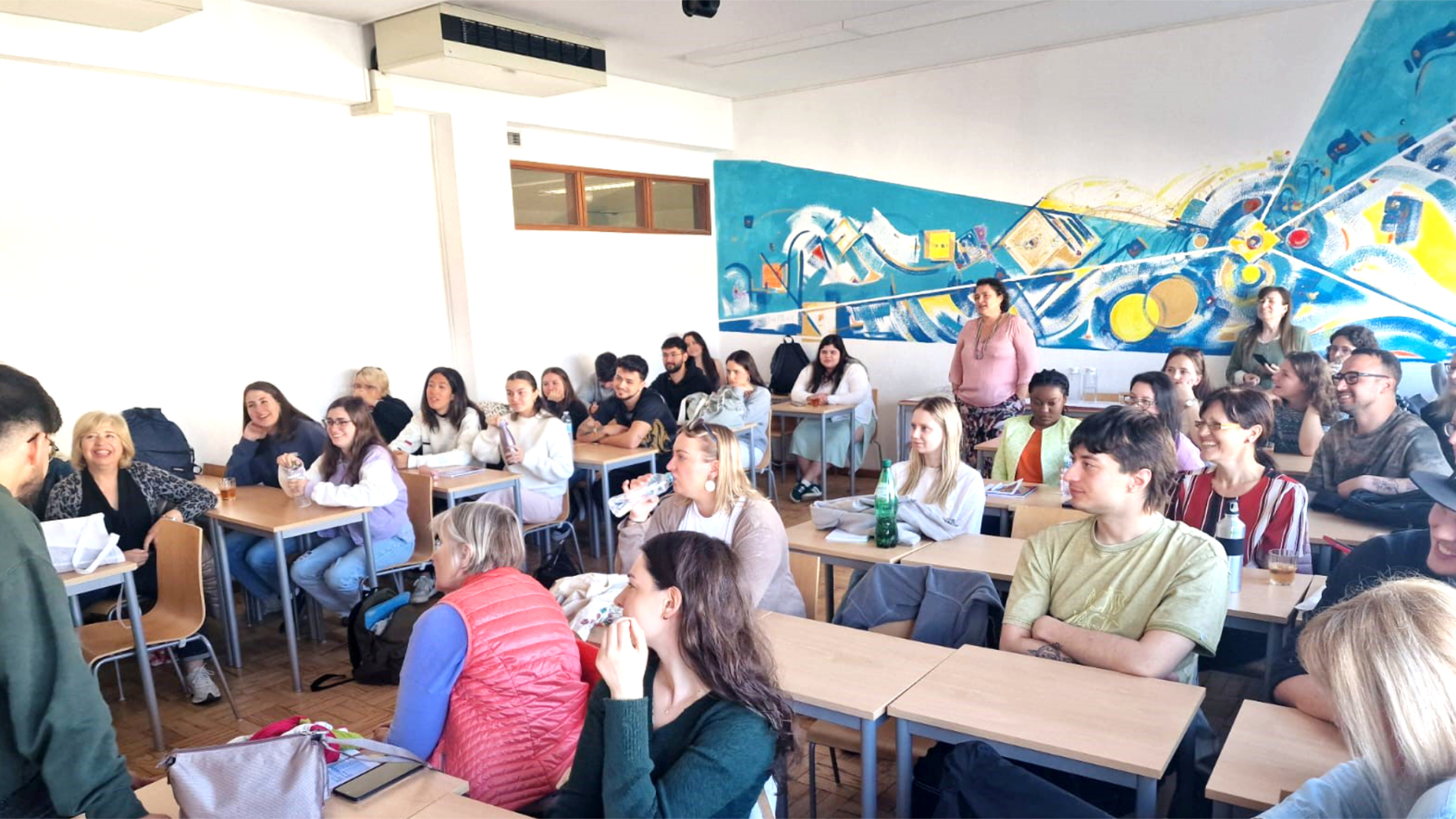
Ravensburg-Weingarten University of Applied Sciences (RWU) is currently in the design phase of a package of measures aimed at increasing the security and safety of its students at student parties. As part of these efforts, a group of nine students from the degree programs Nursing, Psychology, Social Work and Health Economics took part in the Erasmus Blended Intensive Programme (BIP) in Portugal together with the professors Maria Mischo-Kelling and Silvia Queri.
Under the title "Creating a community-based health promotion program in students night life", the students at the University of Coimbra are learning about the principles and tools of community-based interventions. The RWU students experienced in first-hand the work of peer educators and First Aid students who go out into the nightlife to support and educate students. They learned how to take preventative measures to avoid dangers such as sexual assault and how to provide first aid in the event of alcohol poisoning, for example.
As part of the BIP, the students analyzed various problem situations in an international comparison, as the participants come from different countries. They also conducted interviews and surveys in Coimbra's nightlife. Interesting international differences were identified: While German students consume more pure alcohol on average, Portuguese students sing more while drinking. During a training course in disaster medicine, in which an explosion at the university was simulated, the students learned the principles of triage and brought injured people to safety.
At the end of the program, Professor Irma Brito, the coordinator of the program, proposed the development of a European monitoring center that collects and evaluates data from all over Europe. The aim is to react to developments and jointly develop new concepts to ensure the health and safety of the population in the context of leisure activities.
Editor's note: The first sentence of this article was adapted on 23.05.2024 at 09:02 for content reasons.